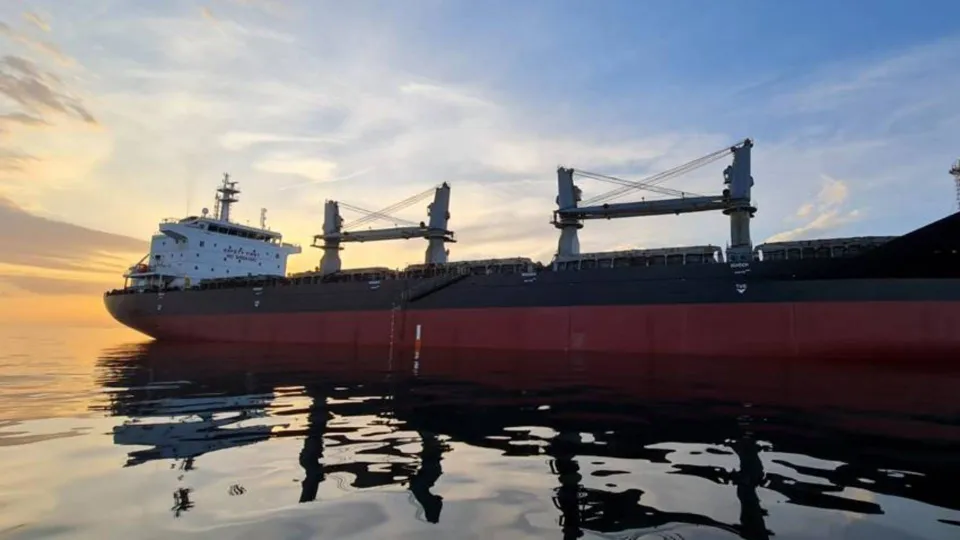It’s become significantly more expensive to charter dry bulk ships. ”We are running a much higher risk in everything we do,” says operator Falcon in an interview with WPO.
The price of chartering a ship has now increased almost three-fold for dry bulk operator Falcon Maritime, say two of the company’s owners, Jakob Borgård Jørgensen and Bo K. Kristensen, as WPO meets them at company headquarters in Copenhagen, overlooking the Øresund strait.
We’re running a much higher risk in everything we do
JAKOB BORGÅRD JØRGENSEN, CEO, FALCON MARITIME
Falcon is one of many dry bulk companies that have benefited from a favorable market this past year, having come out of 2021 with a profit of DKK 239.9m (USD 34.6m) against a deficit of DKK 8.9m the year before.
But despite highly positive developments for dry bulk companies, Falcon must face that the price of chartering ships has skyrocketed. According to Jørgensen, who has just assumed the top executive position at the company, it currently costs up to three times as much as previously to charter a vessel.
”Today, ships cost USD 25,000-30,000 to charter instead of USD 10,000 as they once did,” he tells WPO in an interview.
”When prices go up, it’s reflected by the rates, too. But that means we’re running a much higher risk in everything we do,” he adds, elaborating on the crucial point that potential declines will be steeper, while there are tighter requirements for cash flows because fuels have become more expensive, as well.
”There’s a historically great uncertainty today, and the risk is changing on a daily basis.”
Falcon operates especially within the handysize and /ultramax segments, where current rates amount to around USD 25,000-30,000, too. But ”that is extreme,” Jørgensen says.
Full steam
The dry bulk market had an excellent 2021, which was evident from the results presented by most players. And there’s a lot to indicate that the current year will be a strong one for the industry, too.
There are many signs that things will remain at full steam despite the circumstances
BO KRISTENSEN, HEAD OF PROJECTS, FALCON MARITIME
Falcon, which employs only 12 personnel and operates 30-35 ships, has seen the market getting off to an even better start in 2022 than last year. As such, former CEO and current Head of Projects Bo Kristensen expects the good times on the bulk market to continue.
”The market is at a really high level right now, and there won’t be many new ships because there is no yard capacity. As such, there are many signs that things will remain at full steam despite the circumstances,” Kristensen says.
The expectations of the market are alive despite the industry currently being hit hard by Russia’s invasion of Ukraine, as the two countries make up a major market for goods inclusing grain, fertilizer, coal and steel, which are also a large part of Falcon’s business.
With Western sanctions against Russia, says Kristensen, it’s impossible to get a full picture of how goods and customers are affected day to day, even though the company isn’t directly impacted.
”Things are entirely unclear with the situation in Russia and Ukraine. It’s a huge market that’s suddenly shut off. But we haven’t been directly affected and also have no ships in Ukraine,” he says.
Planned change
Near the end of 2021, Falcon Maritime initiated a planned change in its CEO position, meaning that Kristensen would step down as chief executive early this year to take up another position within the company.
That’s when Jakob Borgård Jørgensen was appointed to take over as CEO, while Kristensen was named head of projects.
This also meant that Kristensen’s ownership stake in the Falcon group was reduced, and that Jørgensen’s increased.
At the beginning of March, Kristensen also took over as chair of the board.






